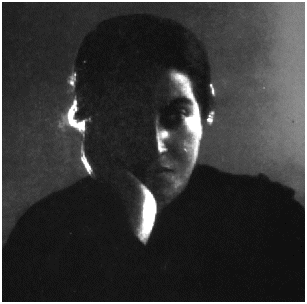Prose-Poems of
Gabriela Mistral
Stephen Tapscott,
Editor and Translator
(University of Texas)

Excuse me: back to the works of Gabriela Mistral. This volume includes fables, elegies, biographies, and essays. Her prose-poems are something else again, reminding one at times of "The Song of Songs," and at others, sounding like a mix of Platero y Yo and Gabriel Garcia Marquez. This is "A Los Niños" --- "To The Children:"
After many years, when I am a little mound of silent dust, play with me, with the clay of my heart and of my bones. If a bricklayer picks me up, he will put me in a brick; I'd stay forever fixed in a wall, and I despise quiet corners. If they make me a brick in a prison, I will blush with shame to hear a man sobbing. If I am a brick in a school, I will suffer too, because I won't be able to sing with you in the dawns.
I would rather be the dust you play with in the paths of the countryside. Walk on me: I have been yours. Destroy me, for I made you. Step on me, because I did not give you all truth and all beauty. Or, simply, sing and run above me, and I'll kiss the souls of your beloved feet...
When you hold me in you hands, recite a beautiful verse, and I'll tingle with pleasure in your fingers. I'll raise myself up to watch you, seeking among you the eyes, the hair, of those I taught.
When you make any image with me, shatter it instantly: at every instant the children made me shatter with tenderness and sorrow!***
This is typical of the thirty or so "Fables" and "Prose-Poems." It is high romanticism mixed with Ovid --- for objects are always being metamorphosed into bricks or pots or flowers or bread or salt.
There is shame ("I did not give you all truth and all beauty") and sacrifice ("Destroy me") and mother love divinity ("For I made you.") And always there is a gentle compassion ("I will blush with shame to hear a man sobbing") along with regret ("I won't be able to sing with you in the dawns") and most of all, sensuality ("I'll tingle with pleasure in your fingers.")
Passion is a key element in her verses, but it is passion in disguise. Underneath the tears and dew and illusions and shadows and footprints grows a rich sensuality, mixed with a child's magic of change and color and touch. For example, the fig,
Touch me: it's the softness of fine satin, and when you open me, what an unexpected rose! Doesn't it remind you of a king's dark cloak that blazed fiery red underneath?
The sensuality is mixed --- as all sensuality must be mixed --- with the touch of Narcissus, marking a very specific moment:
I bloom within myself, inwardly, enjoying a look at myself at least once a week.
When I first picked this one up, I was a little alarmed at the romantic strangeness of it all. Figs as king's cloaks? But it grows on you like a sensual blooming plant. Part of the wonder of this rendering is the layout of the book --- each short passage is translated immediately below. The translations by Stephen Tapscott --- who also edited this volume --- are artful, finely tuned, and, in themselves, worthy poetry. Mistral has faded from view since her death in 1957. She much deserves this excellent revival.
- ***The original Spanish:
Después de muchos años, cuando yo sea un montoncito de polvo callado, jugad conmigo, con la tierra de mi corazón y de mis huesos. Si me recoge un albañil, me pondrá en un ladrillo, y quedaré clavada para siempre en un muro, y yo odio los nichos quietos. Si me hacen ladrillo de cárcel, enrojeceré de vergüenza oyendo sollozar a un hombre; y si soy ladrillo de una escuela, padederé también, de no poder cantar con vosotros, en los amaneceres.
Mejor quiero ser el polvo con que jugáis en los caminos del campo. Oprimidme: he sido vuestra; deshacedme, porque os hice; pisadme, porque no os di toda la verdad y toda la belleza. O, simplemente, cantad y corred sobre mí, para besaros las plantas amadas...